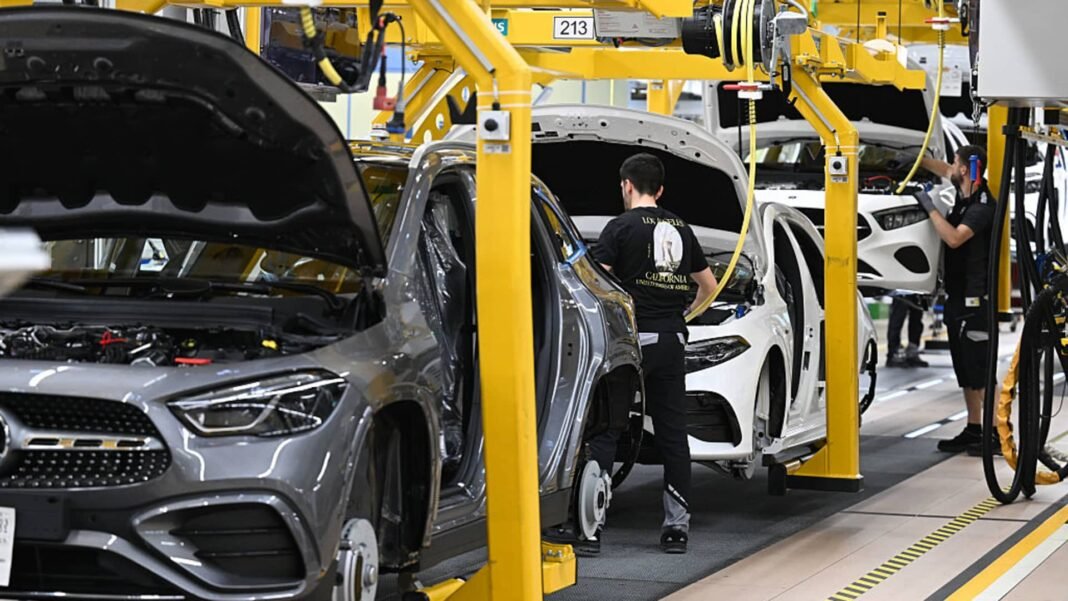Transformations and trials in Germany’s Automotive Sector Amid Economic Changes
Widespread Job Losses Shake the German Auto Industry
The automotive sector, a vital pillar of Germany’s economy, has witnessed a sharp reduction in employment recently. By mid-2025, nearly 7% of its workforce-around 51,500 jobs-had been cut. This figure accounts for almost half of all industrial job losses nationwide during that timeframe, which reached approximately 114,000 across various industries.
Compared to pre-pandemic employment levels in 2019, the auto industry has contracted by roughly 112,000 positions. This ongoing decline reflects mounting pressures impacting both manufacturers and their suppliers throughout the value chain.
Economic Headwinds Undermining Profitability
The sector’s downturn is closely tied to diminishing profits and surplus production capacity amid weakening demand from key global markets. Such as, Volkswagen reported a near 30% drop in second-quarter earnings for 2025 and subsequently revised its annual profit forecast downward.
Revenues within Germany’s automotive industry decreased by about 1.6% year-over-year during Q2 of this year-a smaller fall than the overall industrial revenue decline of roughly 2.1%. Despite this relative stability compared to other sectors, companies face intensifying challenges that threaten future expansion opportunities.
Global Rivalry and Regulatory Obstacles
The german auto market continues to confront fierce competition from chinese manufacturers who combine affordability with rapid innovation cycles. Domestic automakers have struggled to secure a dominant position in the electric vehicle (EV) segment compared with international competitors-a situation partly caused by complex domestic regulations slowing progress efforts.
Tensions surrounding trade policies add further complications: tariffs imposed under previous U.S. administrations disrupted exports substantially as america remains one of Germany’s largest automobile markets. While “Made in Germany” symbolizes quality worldwide, these external barriers have created headwinds for exporters.
Export Declines Reflect Trade Frictions
Data from early-to-mid-2025 indicates an approximate 8.6% decrease in German auto exports to the United States compared with last year’s figures-highlighting how tariff uncertainties continue influencing supply chain decisions across industries.
A recent U.S.-EU trade agreement offers cautious optimism: even though automobiles will face new tariffs capped at 15%, these duties will only be implemented after corresponding EU reforms reduce existing levies on industrial goods-possibly easing export conditions if successfully enacted.
Broad Economic Challenges Impacting Automotive Demand
The sluggish trajectory of Germany’s overall economy also weighs heavily on carmakers’ prospects. following consecutive GDP contractions throughout both 2023 and 2024-the first such declines since reunification-the country entered early-2025 with minimal growth before experiencing slight shrinkage again during Q2.
This macroeconomic habitat suppresses domestic consumer spending power while curbing export demand abroad amid persistent global uncertainties-notably affecting major trading partners like China where internal consumption softens alongside broader market slowdowns.
Anticipated Industry adjustments and Workforce Trends
- Persistent Export Pressures: Sales volumes destined for key markets such as the U.S., impacted mainly by tariffs; and China due largely to waning local demand; are expected to remain constrained through at least mid-decade;
- Cautious Corporate Restructuring: Leading German automakers are actively implementing cost-cutting measures alongside operational streamlining initiatives;
- Looming Employment Reductions: As firms recalibrate business models amid evolving market realities, further workforce downsizing appears likely over coming years;
“The combination of declining global profits coupled with persistent overcapacity means job cuts are an unavoidable reality,” noted an industry analyst reviewing current trends within Germany’s automotive landscape.
Navigating Toward Innovation While Managing Costs
Succeeding amidst shifting global dynamics requires balancing breakthrough innovation against pragmatic cost control strategies if customary carmakers aim not just to survive but thrive.An illustrative case involves collaborations between established brands like Audi partnering with emerging tech startups specializing in solid-state battery technology-demonstrating efforts toward revitalizing competitiveness without compromising core strengths deeply rooted in “made-in-Germany” engineering excellence.






